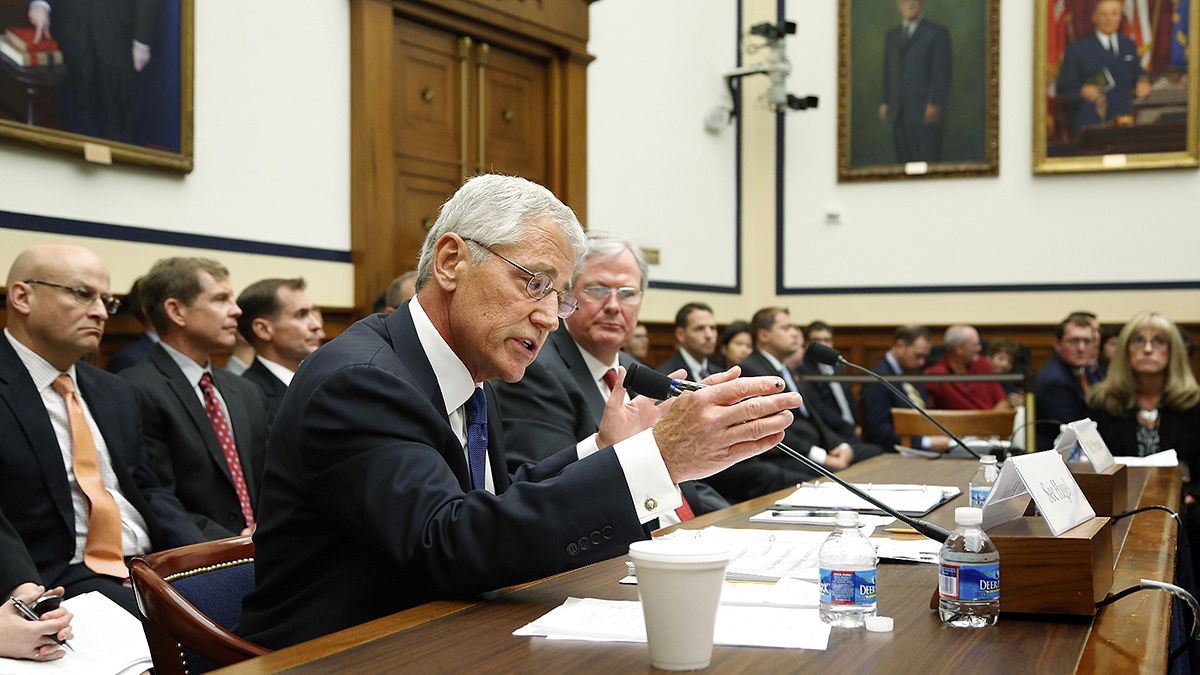US Defence Secretary Chuck Hagel has defended last month’s prisoner swap with the Taliban as the “last, best” chance to secure the release of Army Sergeant Bowe Bergdahl, the only American soldier held captive in Afghanistan.
Mediators indicated time was slipping away to get Bergdahl out safely, Hagel said in a US Congressional hearing on Wednesday.
Hagel was the first Obama administration official to testify publicly about the controversial deal that involved the transfer to Qatar of five detainees at the US prison in Guantanamo Bay,
He told the Armed Services Committee of the House of Representatives that Qatari officials warned in the days before the exchange that “time was not on our side” and a leak would sabotage the deal.
Hagel made no secret that wars necessitate uncomfortable decisions. “War is a dirty business,” he said. “And we don’t like to deal with those realities, but realities they are.”
“The president has constitutional responsibilities and constitutional authorities to protect American citizens and members of our armed forces. That’s what he did,” Hagel said.
“America does not leave its soldiers behind. We made the right decision, and we did it for the right reasons — to bring home one of our own people.”
Republicans and some Democrats have criticised the administration for not informing Congress in advance, with some accusing the president of breaking a law requiring 30-day notification of any Guantanamo prisoner release.
Other questions centre on whether Bergdahl deserted and whether Washington gave up too much for his freedom.
Hagel called the operation an “extraordinary situation” that combined time-sensitive concerns over Bergdahl’s health and safety, last-minute arrangements over where to pick up the soldier and persistent fears the Taliban may have been negotiating in bad faith.
Hagel offered the most detailed public timeline of the negotiations and ensuing rescue efforts to date. The initial talks with the Taliban were broken off in March 2012 and restarted in September 2013 when the government of Qatar offered to act as an intermediary.
At that time the US requested the proof of life video that was ultimately received last January and shown to members of Congress over the last several days.
“It was disturbing. It showed deterioration in his physical appearance and mental state compared to previous videos,” Hagel said. Some lawmakers have said they believe Bergdahl might have been drugged during the video.
Talks picked up again in April, and the US and Qatar agreed on detailed security measures that would be put in place if the Qataris assumed custody of the Taliban detainees once they were transferred out of Guantanamo Bay. Soon after that came the warning from the Qataris that the transfer needed to be completed quickly.
Three days of intensive talks led to an agreement on the modalities of the swap on May 27. Once the plan was set in motion, 96 hours elapsed before Bergdahl was in US hands.
Opening Wednesday’s hearing, McKeon described the agreement with the Taliban as the “deeply troubling” result of “unprecedented negotiations with terrorists”.
McKeon worried that the newly freed Taliban figures “still pose a threat to Americans and Afghans alike” because “in a year, they will be free to return to Afghanistan”.


